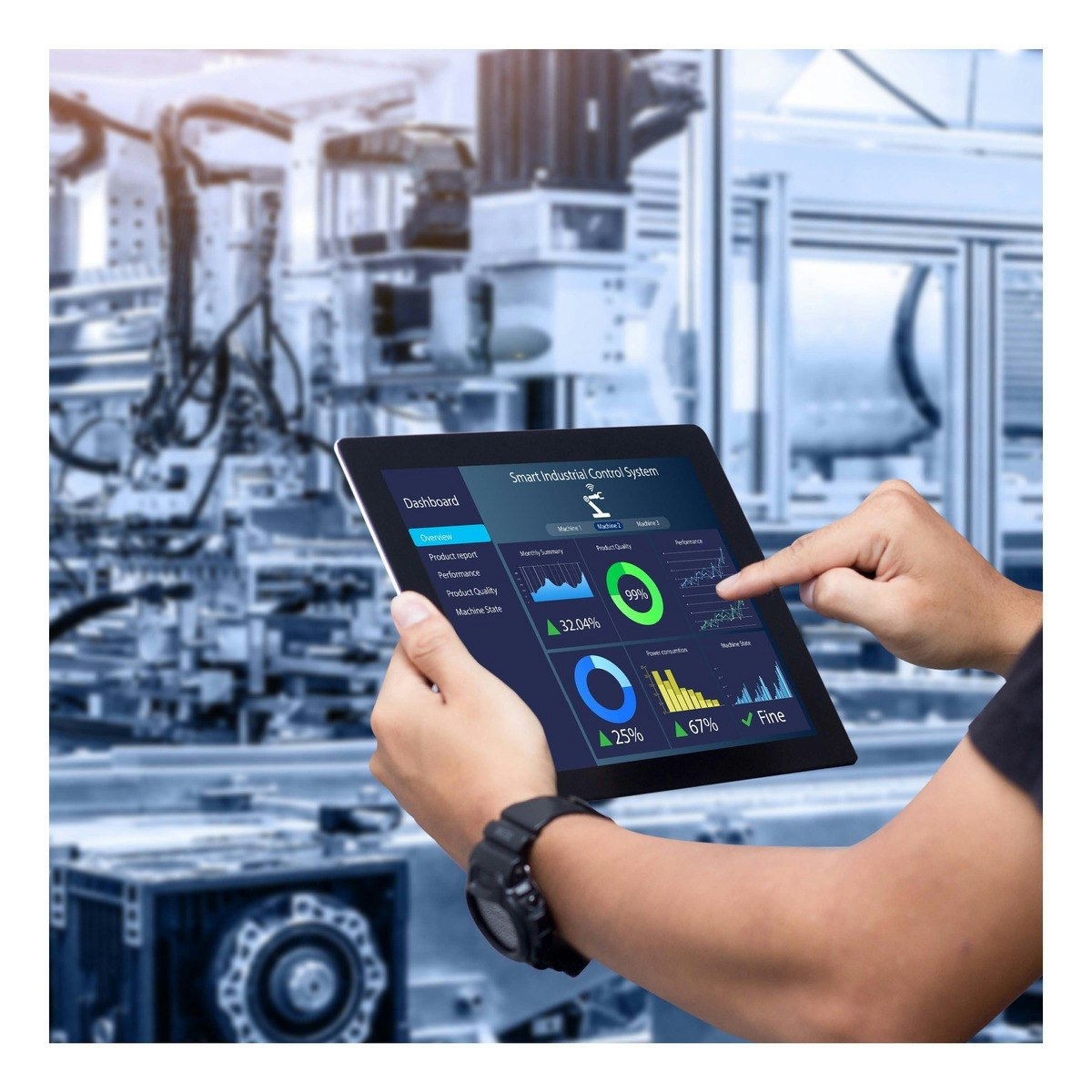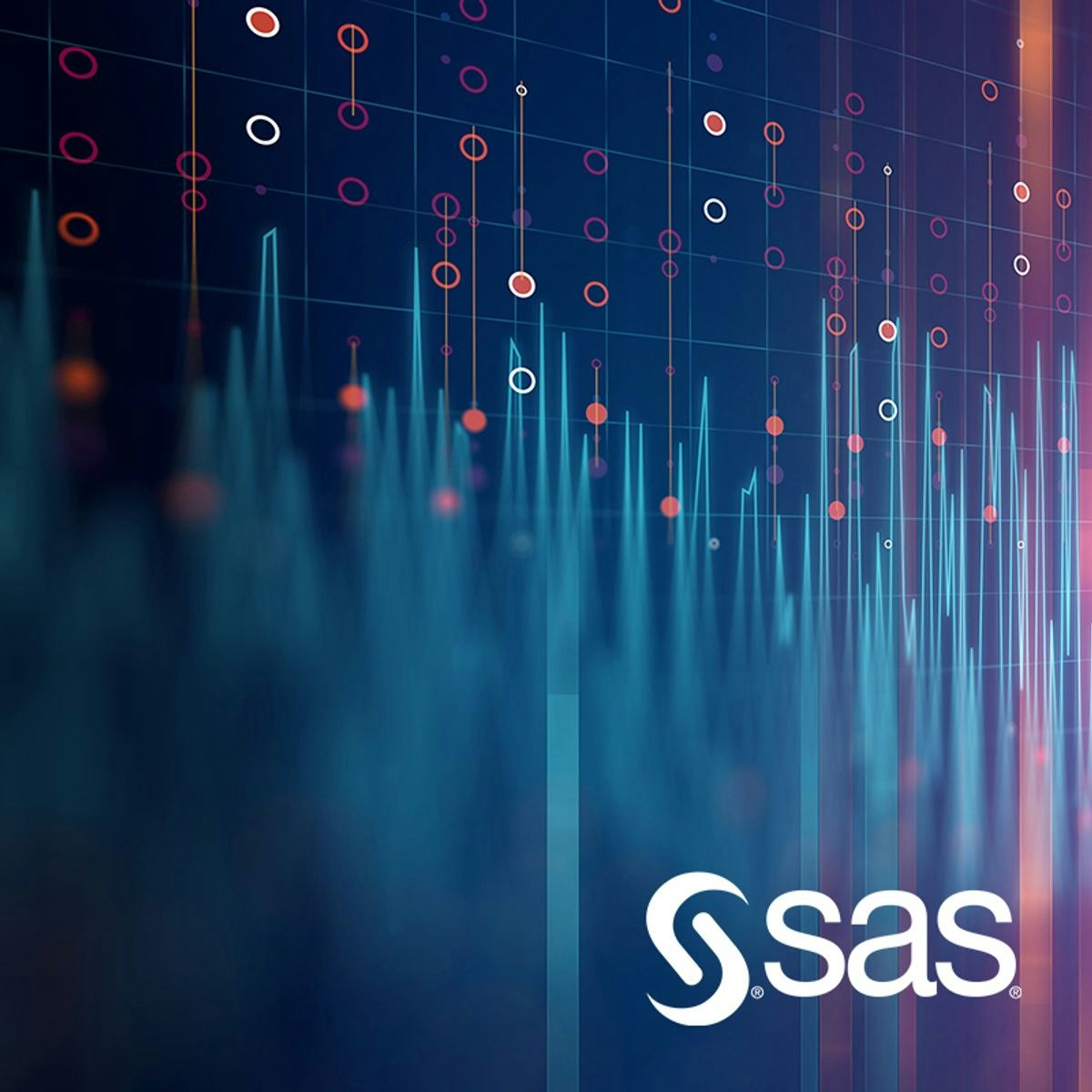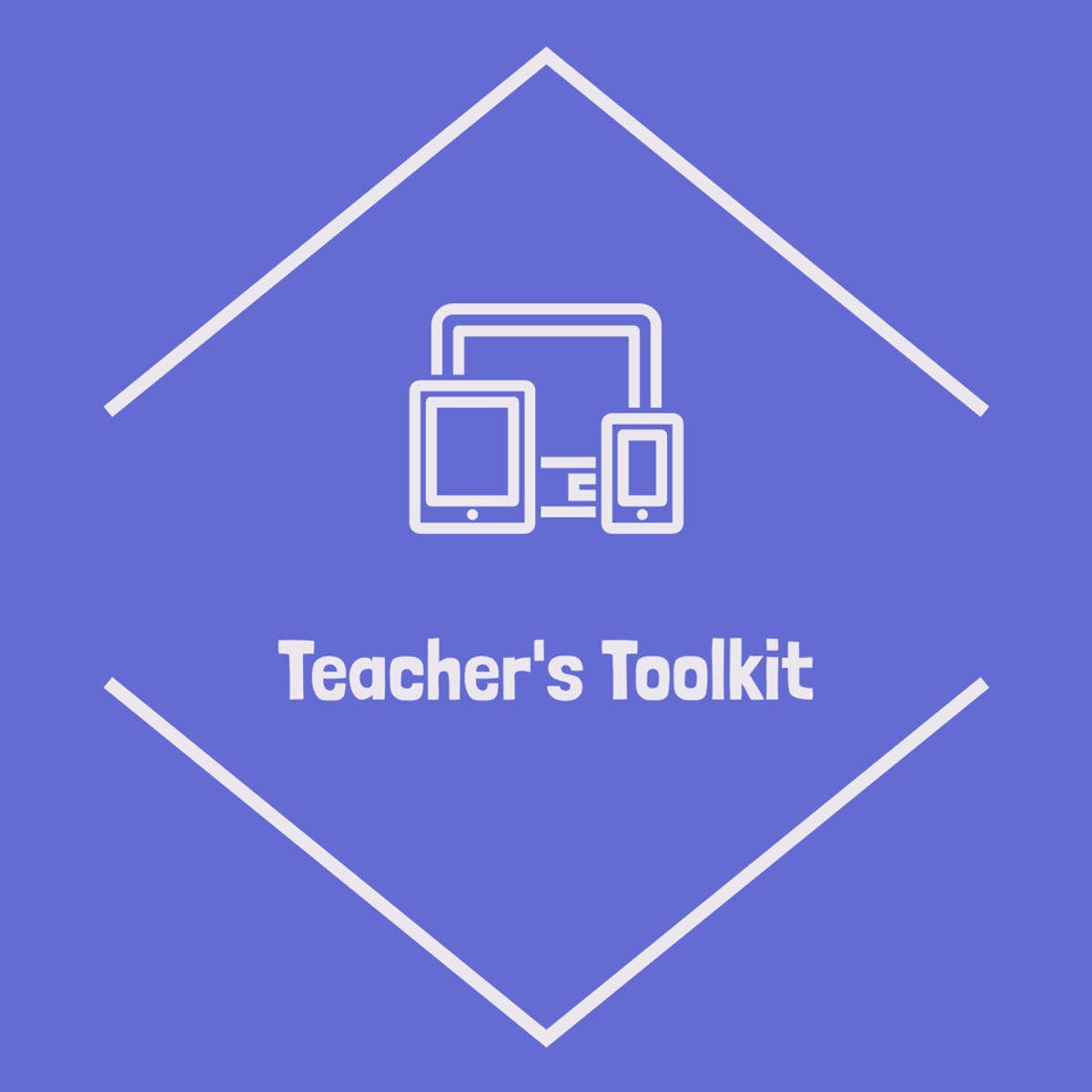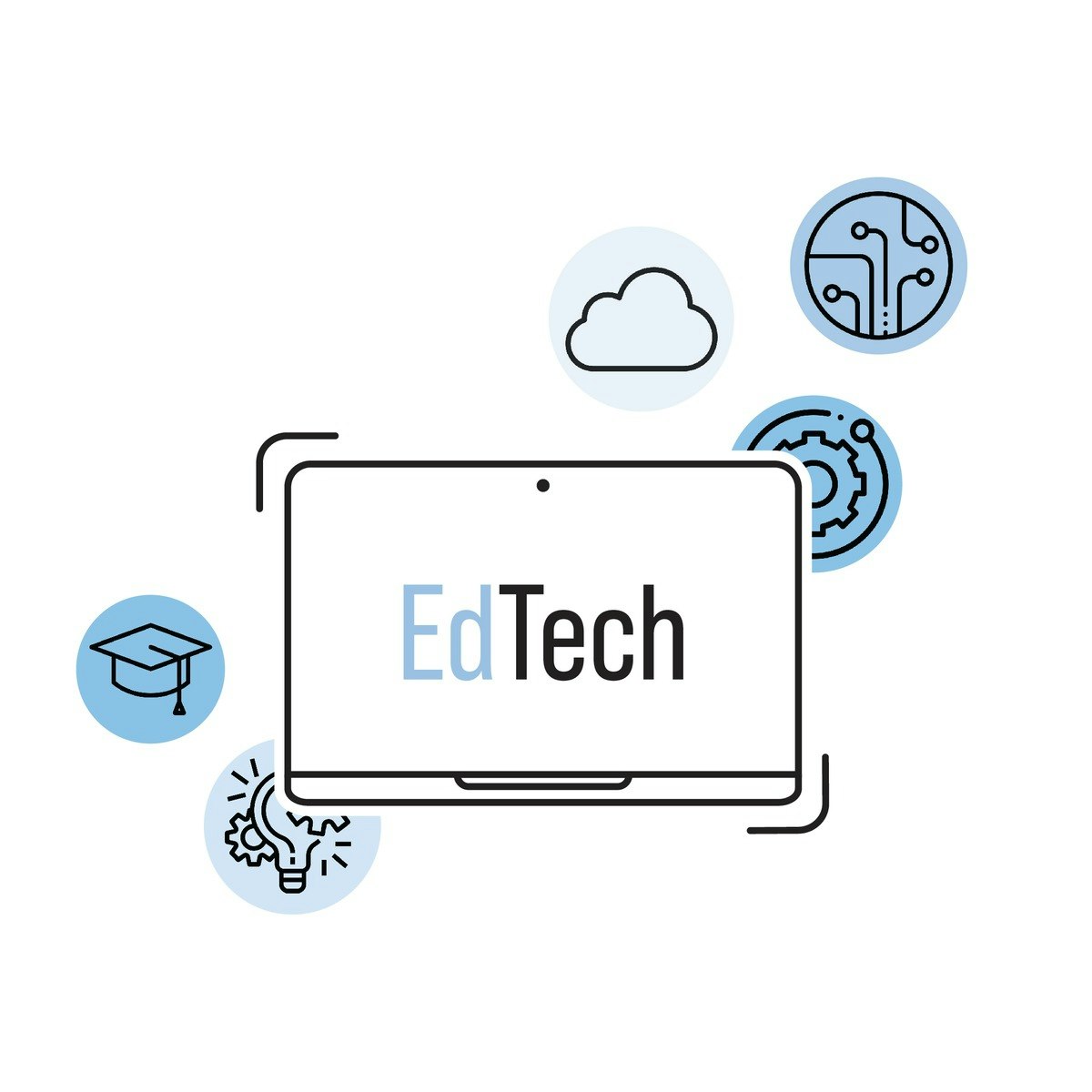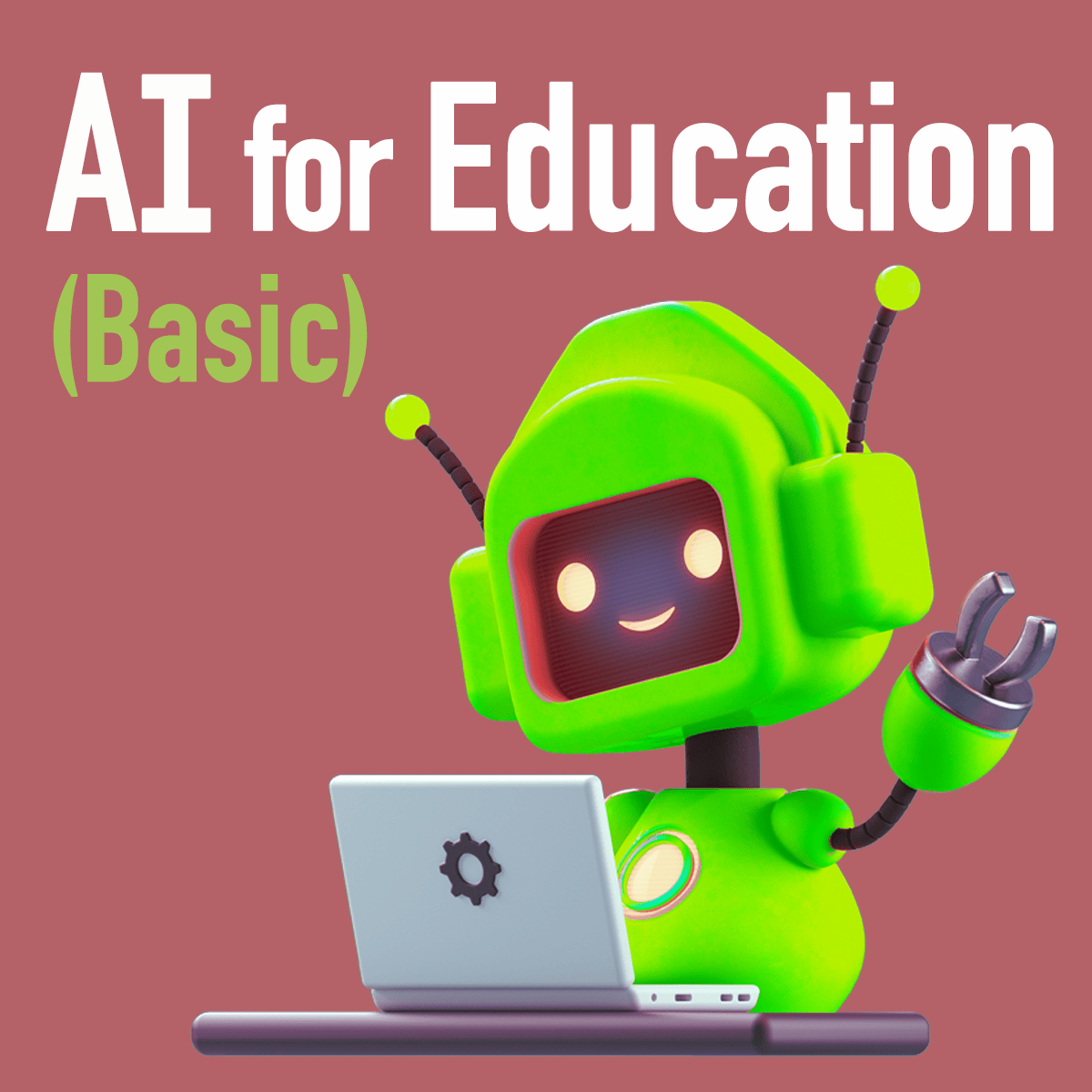Educational Researcher
Educational Researcher: A Comprehensive Career Guide
Educational research involves the systematic study of learning processes, educational methods, and the social, political, and economic factors that influence educational systems. At its core, educational research aims to improve educational outcomes and practices through rigorous investigation and analysis. Researchers in this field explore questions about how people learn, what makes teaching effective, and how educational policies impact students, teachers, and communities.
Working as an educational researcher can be deeply engaging. You might find yourself designing studies that test innovative teaching techniques, analyzing large datasets to understand achievement gaps, or collaborating with educators to implement research-based practices in schools. The field offers opportunities to contribute meaningful knowledge that can shape the future of education and impact learners' lives.
Introduction to Educational Researchers
What is Educational Research?
Educational research is a field dedicated to understanding and improving education through systematic inquiry. Researchers investigate a vast array of topics, from cognitive processes involved in learning specific subjects like math or reading, to the effectiveness of different pedagogical approaches. They also examine broader systemic issues, such as educational equity, policy implementation, and the role of technology in learning.
The primary goal is to generate reliable evidence that can inform educational practice, policy, and theory. This involves asking critical questions, designing studies to answer them, collecting and analyzing data, and disseminating findings to educators, policymakers, and the public. Ultimately, educational researchers strive to enhance teaching quality, student learning experiences, and overall educational system effectiveness.
This field draws upon methodologies and theories from various disciplines, including psychology, sociology, economics, statistics, and political science. It requires a blend of analytical skills, critical thinking, and a deep understanding of educational contexts. You can explore foundational concepts within the Education category on OpenCourser.
A Brief History
The field of educational research evolved significantly throughout the 20th century. Early efforts often focused on psychological perspectives, measuring intelligence and learning capabilities. Thinkers like John Dewey emphasized the connection between education and democratic society, advocating for experiential learning and critical inquiry.
Mid-century saw the rise of large-scale quantitative studies, often funded by governments seeking to evaluate educational programs and policies, particularly after events like the launch of Sputnik spurred interest in science and math education. This era solidified the importance of empirical data in educational decision-making.
More recently, the field has embraced a wider range of methodologies, including qualitative research that explores the nuances of classroom interactions and lived experiences. There's also a growing emphasis on mixed-methods research, combining quantitative and qualitative approaches for a more comprehensive understanding. The digital age has further transformed the field, enabling new forms of data collection and analysis.
Educational Researcher vs. Related Roles
While educational researchers focus on systematic inquiry, their work often intersects with related roles. Teachers, for example, are primary consumers and sometimes participants in research, applying findings in their classrooms. However, their main focus is instruction and student development, not typically large-scale research design and analysis.
Policy analysts use research findings to advise government agencies or organizations on educational policies. While they need strong analytical skills, their role centers on evaluating policy options and consequences, often synthesizing existing research rather than conducting original studies. Their focus is typically more immediate and pragmatic.
Policy Analysts often work closely with researchers but have distinct responsibilities.
Instructional designers create learning materials and experiences, sometimes drawing on educational research principles. Their focus is on the practical design and development of curriculum and training, whereas researchers are primarily concerned with generating and testing knowledge about learning and teaching processes.
Key Responsibilities of Educational Researchers
Designing and Conducting Studies
A core responsibility of an educational researcher is designing research studies to answer specific questions about education. This involves defining research problems, formulating hypotheses or research questions, and selecting appropriate methodologies. Researchers must choose designs that best fit the question, whether experimental, quasi-experimental, correlational, or descriptive.
Careful planning is essential. Researchers must determine the population and sample, identify variables to measure, and outline procedures for data collection. Ethical considerations, such as obtaining informed consent and ensuring participant confidentiality, are paramount throughout the design phase.
Executing the study involves implementing the planned procedures, managing logistics, and overseeing data collection. This might require coordinating with schools, training data collectors, or administering surveys and assessments. Attention to detail ensures the study is conducted rigorously and ethically.
Gathering and Analyzing Data
Educational researchers employ a variety of methods to collect data. Quantitative methods involve numerical data, often gathered through standardized tests, surveys with scaled responses, or experimental measurements. Qualitative methods focus on non-numerical data, such as interviews, classroom observations, case studies, or analysis of documents, providing rich, contextual understanding.
Data analysis depends on the type of data collected. Quantitative analysis often involves statistical techniques to identify patterns, relationships, and differences using software like SPSS, R, or Stata. Researchers might use descriptive statistics, inferential tests like t-tests and ANOVA, or more complex modeling like regression analysis or factor analysis.
Qualitative data analysis involves interpreting themes, patterns, and meanings within textual or observational data. Techniques like thematic analysis, content analysis, or discourse analysis help researchers make sense of complex social phenomena. Increasingly, researchers use mixed-methods approaches, integrating both quantitative and qualitative data for a more holistic view.
For those needing a foundation in statistical methods commonly used in research, these courses offer valuable introductions.
These books delve deeper into research methodologies and data mining techniques relevant to educational contexts.
Interpreting Findings and Impact
Once data is analyzed, researchers must interpret the results in the context of their research questions and existing literature. This involves drawing conclusions, acknowledging limitations, and considering the implications of the findings for educational theory, practice, or policy.
A key aspect is understanding the practical significance of the results. Statistical significance doesn't always equate to real-world importance. Researchers need to communicate what their findings mean for actual classrooms, schools, or educational systems.
Analyzing potential policy impacts is often a crucial step. Researchers might assess how their findings could inform decisions about curriculum, teacher training, funding allocation, or assessment strategies. This requires translating complex research results into clear, actionable insights for policymakers and stakeholders.
Collaboration and Dissemination
Educational research is rarely a solitary endeavor. Researchers often collaborate with colleagues within their institution or across different organizations. Collaboration is also common with practitioners, such as teachers and administrators in schools or districts, to ensure research is relevant and applicable to real-world settings.
Dissemination is a critical final step. Researchers share their findings through various channels, including peer-reviewed academic journals, conference presentations, reports for funding agencies or policymakers, and sometimes publications aimed at educators or the general public.
Effective communication skills are vital for explaining complex research methods and findings to diverse audiences. The goal is not just to publish, but to ensure the knowledge generated contributes to meaningful improvements in education.
This course explores evidence-based methods for effectively communicating scientific findings, a crucial skill for researchers.
Formal Education Pathways
Undergraduate Foundations
While there isn't one specific undergraduate major required to become an educational researcher, certain fields provide a strong foundation. Degrees in psychology, sociology, economics, or statistics equip students with valuable theoretical frameworks and analytical skills relevant to studying educational phenomena.
Majoring in education itself can also be beneficial, providing deep contextual knowledge of teaching practices, curriculum development, and school systems. Some students combine an education major with a minor in a related field like statistics or psychology.
Regardless of the major, coursework in research methods, statistics, and writing is highly recommended. Gaining practical research experience through undergraduate research assistantships or independent projects can significantly strengthen applications for graduate programs.
Graduate Studies: Master's and PhD
Most educational researcher positions require an advanced degree, typically a Master's or, more commonly, a Ph.D. Master's programs often provide foundational research skills and may prepare individuals for roles as research assistants or analysts in certain settings.
A Ph.D. (Doctor of Philosophy) or Ed.D. (Doctor of Education) is generally required for independent research roles, university faculty positions, or leadership positions in research organizations. Ph.D. programs typically emphasize theoretical research and methodology, preparing graduates for academic careers.
Ed.D. programs often focus more on applied research and educational leadership, targeting practitioners seeking to use research to solve problems in educational settings. Both degree types involve rigorous coursework, comprehensive exams, and the completion of a dissertation based on original research.
Core Coursework Essentials
Graduate programs in educational research heavily emphasize research methodology and statistics. Core coursework almost universally includes advanced quantitative methods, covering topics like experimental and quasi-experimental design, regression analysis, multivariate statistics, and psychometrics (the science of measuring psychological attributes).
Qualitative research methods are also a crucial component, covering approaches such as case study research, ethnography, grounded theory, and narrative inquiry. Students learn techniques for collecting qualitative data (interviews, observations) and analyzing it systematically.
Beyond methods, coursework often includes foundational theories of learning and development, sociology of education, education policy, and specialized topics relevant to the student's area of interest (e.g., math education, literacy, special education, higher education). Understanding quantitative research methods and qualitative approaches is essential.
The Role of Thesis and Dissertation
The culmination of most Master's and nearly all doctoral programs in educational research is the completion of a substantial original research project: a thesis (Master's) or dissertation (Ph.D./Ed.D.). This project demonstrates the student's ability to conceptualize, design, conduct, analyze, and report on independent research.
Students work closely with a faculty advisor and committee to develop a research question, review existing literature, choose appropriate methods, collect and analyze data, and write up their findings. The process is demanding and requires significant time, effort, and intellectual independence.
The dissertation is intended to make an original contribution to the field, however modest. Successfully defending the dissertation signifies that the candidate has mastered the skills necessary to function as an independent researcher. It is often the first major piece of scholarly work in a researcher's career.
Online Learning and Skill Development
Leveraging Online Courses for Foundational Skills
Online courses offer flexible and accessible pathways to build foundational knowledge for a career in educational research. Platforms like OpenCourser provide access to courses covering statistics, research methods, psychology, and sociology from reputable universities worldwide.
These courses can be particularly valuable for individuals exploring a career change or supplementing a traditional degree program. They allow learners to acquire essential skills at their own pace and often at a lower cost than traditional university programs. You can explore relevant subjects through the Social Sciences or Data Science browse pages.
While online courses alone may not replace a formal graduate degree, they can provide a strong starting point, help clarify career interests, and demonstrate initiative to potential graduate programs or employers. They are an excellent way to test the waters and build confidence.
These courses provide insights into using data and evidence in educational settings, crucial for aspiring researchers.
Developing Practical Research Skills Online
Beyond foundational knowledge, online learning can help develop practical skills needed for educational research. Many courses focus on specific digital tools used in data analysis, such as R, Python, or specialized statistical software packages. Learning these tools is crucial for handling and analyzing research data effectively.
Project-based online courses allow learners to apply concepts immediately. For instance, a course might guide students through analyzing a sample dataset, designing a survey instrument, or coding qualitative interview transcripts. This hands-on experience is invaluable for skill development.
Online platforms also offer training in skills like academic writing, literature searching, and data visualization – all essential components of the research process. These focused courses can help bridge gaps in a learner's skillset efficiently.
This book provides a comprehensive overview of using learning analytics, a growing area in educational research.
Building a Portfolio with Online Projects
Completing projects through online courses allows aspiring researchers to build a tangible portfolio showcasing their skills. This portfolio can include data analysis reports, research proposals, literature reviews, or even small-scale pilot studies designed and executed as part of coursework.
Think of a portfolio like a show-and-tell for your research abilities. Instead of just saying you know statistics, you can show a report where you analyzed data. Instead of just listing "research design" on a resume, you can include a well-structured research proposal you developed.
This portfolio serves as concrete evidence of competence, which can be highly persuasive when applying for graduate programs or entry-level research positions. It demonstrates practical application of knowledge beyond just course completion certificates.
These project-focused courses, while specific to teaching, illustrate the type of hands-on work that can build portfolio pieces.
Integrating Online Learning into Your Career Path
For working professionals or those considering a career pivot into educational research, online learning offers a flexible way to upskill or reskill. Courses can be completed around existing work schedules, allowing individuals to explore the field without immediately committing to a full-time graduate program.
Online certificates or specializations can provide structured learning paths and credentials that signal commitment and foundational knowledge. They can bolster a resume or graduate school application, demonstrating proactive engagement with the field.
OpenCourser's Learner's Guide offers valuable resources on how to structure self-learning, stay motivated, and effectively use online courses for professional development or career change. Features like saving courses to a list help organize learning goals and track progress towards acquiring the skills needed for educational research.
Career Progression as an Educational Researcher
Starting Your Journey: Entry-Level Roles
Entry into the field often begins with roles like Research Assistant or Project Coordinator, typically requiring a Bachelor's or Master's degree. In these positions, individuals support senior researchers by assisting with literature reviews, data collection, data entry, participant recruitment, and basic analysis.
These roles provide invaluable hands-on experience with the research process. They offer opportunities to learn different methodologies, work with experienced researchers, and gain exposure to various aspects of managing research projects. It's a critical phase for skill-building and understanding the day-to-day realities of research work.
Other entry points might include roles as data analysts in school districts or educational organizations, focusing specifically on analyzing existing student or administrative data. These positions emphasize quantitative skills and data management.
Advancing Your Career: Mid-Level Opportunities
With experience and typically a Master's or Ph.D., researchers can advance to mid-level roles. Positions like Lead Researcher, Project Manager, or Research Scientist involve greater responsibility for designing studies, overseeing data collection and analysis, managing project budgets and timelines, and supervising junior staff.
At this stage, researchers often begin to develop specialized expertise in a particular area of education (e.g., early childhood, STEM education, policy evaluation). They may take the lead on writing grant proposals, publishing research findings, and presenting at conferences.
These roles require strong methodological skills, project management abilities, and effective communication. They often involve collaborating with diverse stakeholders, including funders, policymakers, and practitioners.
Reaching Senior Positions
Senior roles in educational research often require a Ph.D. and a significant track record of research, publications, and successful grant acquisition. Positions like Director of Research, Principal Investigator (PI), Senior Research Scientist, or University Professor involve setting research agendas, leading large research teams or centers, and mentoring junior researchers.
In academia, senior researchers (typically tenured professors) balance research with teaching graduate courses and providing service to the university and the broader field. In non-academic settings (like research firms or government agencies), senior roles focus on strategic leadership, securing major funding, and influencing policy or practice on a larger scale.
These positions demand not only deep research expertise but also strong leadership, strategic thinking, and networking skills. Senior researchers often play a key role in shaping the direction of educational research within their organizations and the field at large.
Alternative Paths and Pivots
The skills developed as an educational researcher are highly transferable to various other fields. Many researchers pivot into related roles throughout their careers. For example, expertise in research design and data analysis is valuable in program evaluation, policy analysis, and market research.
Some researchers move into administrative leadership positions within educational institutions, using their understanding of data and evidence to inform decision-making. Others become consultants, advising schools, districts, or EdTech companies on research-based practices or product development.
Skills in quantitative analysis can lead to roles in data science, while expertise in learning processes might lead to careers in instructional design or corporate training and development. The rigorous training in critical thinking, problem-solving, and communication opens doors to diverse opportunities beyond traditional research roles.
These books offer insights into applying research and design principles in practice.
Industry Trends Affecting Educational Researchers
The Rise of EdTech and Big Data
The proliferation of educational technology (EdTech) has generated unprecedented amounts of data about learning processes. This creates new opportunities for researchers to study learning at scale and develop personalized interventions. However, it also presents challenges related to data access, privacy, and the need for sophisticated analytical techniques.
Researchers increasingly need skills in handling large datasets (big data), machine learning, and learning analytics to leverage these new data sources effectively. The field is evolving to incorporate computational methods alongside traditional research approaches. According to reports from organizations like World Economic Forum, the integration of technology in education is a continuing major trend.
This trend also influences research questions, focusing more on the effectiveness of digital learning tools, online pedagogy, and the ethical implications of AI in education.
Focus on Evidence-Based Policy and Practice
There is a growing demand from policymakers and funders for educational interventions and policies to be backed by rigorous evidence. This emphasis on evidence-based practice increases the importance and visibility of high-quality educational research.
Organizations like the U.S. Department of Education's What Works Clearinghouse review and synthesize research to identify effective programs. This creates pressure on researchers to conduct studies, particularly randomized controlled trials (RCTs), that meet high standards of causal evidence.
This trend requires researchers to be adept not only at conducting rigorous studies but also at communicating their findings clearly to non-expert audiences, bridging the gap between research and practice. It also fuels debate about what constitutes "evidence" and the limitations of relying solely on certain types of research designs.
Addressing Global Education Challenges
Educational research is increasingly focused on global challenges, such as improving access to quality education in developing countries, addressing educational disparities related to gender, socioeconomic status, or location, and understanding the impact of migration and conflict on education systems.
International organizations like UNICEF and the World Bank fund and conduct research to inform global education policies and initiatives, such as the Sustainable Development Goals (SDGs). This creates opportunities for researchers interested in comparative and international education.
Working in global contexts requires cultural sensitivity, adaptability, and often skills in cross-cultural research methods. Researchers may need to navigate complex political and social environments and collaborate with diverse international partners.
Funding and Sector Shifts
Funding for educational research comes from various sources, including government agencies (like the National Science Foundation or the Institute of Education Sciences in the U.S.), private foundations, and increasingly, commercial entities, particularly in the EdTech sector.
Shifts in government priorities and economic conditions can impact the availability of public funding, creating uncertainty for researchers reliant on grants. The growing role of private funding raises questions about potential conflicts of interest and the alignment of research agendas with commercial goals versus public good.
The landscape of where educational research happens is also shifting, with more research being conducted within EdTech companies and private research firms, alongside traditional university settings. This diversification creates different types of career opportunities but also necessitates navigating varied organizational cultures and expectations.
This handbook provides insights into managing research within institutional contexts.
Ethical Challenges in Educational Research
Protecting Vulnerable Participants
Educational research often involves participants who are considered vulnerable populations, particularly children and adolescents. Researchers have a profound ethical responsibility to protect their rights and well-being. This includes obtaining informed consent from parents or guardians and assent from the children themselves, ensuring they understand what participation entails.
Special care must be taken when working with students who have disabilities, are from marginalized communities, or are in situations where they might feel pressured to participate. Researchers must design procedures that minimize risks, avoid coercion, and ensure participation is voluntary and can be withdrawn at any time without penalty.
Institutional Review Boards (IRBs) play a crucial role in overseeing research ethics, reviewing study protocols to ensure adequate safeguards are in place before research begins.
Ensuring Data Privacy and Confidentiality
Educational researchers often handle sensitive data, including student academic records, test scores, behavioral observations, and personal information shared during interviews. Protecting the privacy and confidentiality of this data is a critical ethical obligation.
Researchers must implement robust data security measures to prevent unauthorized access. Data should be anonymized or de-identified whenever possible, removing names and other direct identifiers. When sharing data or publishing results, researchers must ensure individuals cannot be identified.
Navigating data privacy regulations, such as FERPA (Family Educational Rights and Privacy Act) in the U.S. or GDPR in Europe, is essential. Researchers need to be knowledgeable about legal requirements and best practices for secure data management and storage.
Mitigating Bias in Research
Researchers must strive for objectivity and be vigilant about potential sources of bias throughout the research process. Bias can creep into the formulation of research questions, the selection of participants, the choice of measurement instruments, the data analysis process, and the interpretation and reporting of findings.
Personal beliefs, cultural assumptions, or unconscious biases can influence how researchers design studies or interpret data. For example, using assessment tools that are culturally biased could disadvantage certain student groups. Researchers must critically examine their own assumptions and methodologies.
Employing rigorous research designs, using validated instruments, involving diverse perspectives in the research team, and being transparent about methods and potential limitations are key strategies for mitigating bias and enhancing the credibility of research findings.
This book explores how practitioners can critically reflect on their assumptions and biases.
Navigating Conflicts of Interest
Conflicts of interest can arise when a researcher's personal interests (financial, professional, or otherwise) could potentially compromise their objectivity or judgment in conducting or reporting research. For instance, receiving funding from a company whose educational product is being evaluated presents a clear conflict.
Researchers have an ethical duty to disclose any potential conflicts of interest to funders, institutions, journals, and research participants. Transparency allows others to assess the potential for bias.
Institutions and funding agencies typically have policies for managing conflicts of interest. Researchers must adhere to these policies and take steps to mitigate potential bias, such as having independent data analysis or oversight, to maintain the integrity of their work.
Global Opportunities for Educational Researchers
Comparative Education Research
Globalization has increased interest in comparative education – the study of educational systems, policies, and practices across different countries and cultures. Researchers in this area analyze similarities and differences to understand how various contexts shape educational outcomes.
Comparative studies can provide valuable insights for policymakers seeking to learn from international best practices or understand global trends. Research might compare curriculum standards, teacher training models, assessment systems, or approaches to educational equity across nations.
This work often involves international collaboration, navigating language barriers, and understanding diverse cultural contexts. It requires sensitivity and careful consideration of how educational concepts translate across different settings.
International Development and Education Goals
Many educational researchers work in the field of international development, contributing to efforts aimed at improving education in low- and middle-income countries. Their research informs programs focused on increasing access to schooling, enhancing learning quality, promoting gender equity in education, and supporting education in crisis or conflict settings.
Researchers may work for international organizations (like UNESCO, UNICEF, World Bank), non-governmental organizations (NGOs), or universities with global development programs. They design, implement, and evaluate educational interventions and conduct research to inform policy dialogues.
This work often aligns with global agendas like the Sustainable Development Goals (SDGs), particularly SDG 4, which focuses on ensuring inclusive and equitable quality education for all.
Navigating Cultural Contexts
Conducting educational research internationally requires navigating complex cultural contexts. Research methods, assessment tools, and even basic concepts of learning and teaching may need adaptation to be culturally appropriate and valid.
Building trust and rapport with local communities, educators, and policymakers is essential. Researchers must be mindful of power dynamics and strive for collaborative partnerships that respect local knowledge and perspectives. Language barriers can also pose significant challenges.
Ethical considerations are paramount, particularly regarding informed consent, data privacy, and the potential impact of research on vulnerable populations within different cultural norms and legal frameworks.
Securing International Funding
Funding for international educational research comes from diverse sources, including national governments, international organizations, philanthropic foundations, and universities. Securing funding often requires navigating complex application processes and demonstrating the relevance and potential impact of the research.
Grant proposals typically need to articulate clear research questions, sound methodologies appropriate for the international context, and feasible plans for collaboration and dissemination. Competition for funding can be intense.
Researchers need strong grant-writing skills and often benefit from established networks and partnerships with institutions or researchers in the target countries. Understanding the priorities and requirements of different international funding bodies is crucial for success.
The Impact of Educational Research
How Research Shapes Learning Environments
Educational research directly influences the design of learning environments, from classroom layouts to the structure of online courses. Studies on cognitive science, for example, inform how instructional materials are designed for optimal learning and memory retention.
Research on collaborative learning has led to increased use of group work and project-based learning strategies. Similarly, findings on motivation and engagement have shaped approaches to creating more student-centered and engaging classroom climates.
The physical design of schools and classrooms, the integration of technology, and the selection of curriculum materials are all areas where educational research provides evidence to guide decisions aimed at creating more effective and supportive learning spaces.
These courses explore aspects of designing effective learning experiences.
Informing Educational Policy
One of the major goals of educational research is to provide evidence that informs sound educational policy. Research findings on topics like class size reduction, teacher evaluation methods, school choice programs, or standardized testing policies can influence decisions made at local, state, and national levels.
Researchers often work directly with policymakers, providing briefings, testimonies, or reports that synthesize research evidence on specific issues. Think tanks and research organizations play a key role in translating research for policy audiences.
While the relationship between research and policy is complex and not always direct, credible research provides a crucial foundation for debates and decisions about how to structure and govern educational systems effectively and equitably.
Improving Teaching Practices
Educational research provides valuable insights into effective teaching strategies. Studies might compare the effectiveness of different instructional methods, explore how teachers can best support diverse learners, or identify characteristics of high-quality teacher professional development.
This research informs teacher education programs and ongoing professional learning opportunities for educators. Concepts like formative assessment, differentiated instruction, or inquiry-based learning have emerged from research and become integral parts of pedagogical discourse and practice.
Bridging the gap between research findings and actual classroom practice remains a challenge, but efforts like action research, where teachers actively participate in studying their own practice, help connect research directly to improvements in teaching.
These books and courses delve into effective teaching practices grounded in research.
Communicating Research to the Public
Beyond academic and policy circles, educational researchers also have a role in communicating findings to the broader public, including parents and community members. Making research accessible helps foster informed public dialogue about education issues.
This might involve writing articles for popular media, giving public talks, or developing resources for parents. Communicating complex ideas clearly and engagingly is a distinct skill.
By sharing insights from research, educational researchers can help demystify educational processes, challenge misconceptions, and empower stakeholders to advocate for evidence-based improvements in their local schools and communities.
This course focuses specifically on the challenges and strategies for science communication.
Frequently Asked Questions
Q: What skills are essential besides academic credentials?
A: Beyond strong research methodology and subject matter expertise, successful educational researchers need excellent analytical and critical thinking skills to interpret complex data and identify meaningful patterns. Strong written and oral communication skills are vital for disseminating findings effectively to diverse audiences. Collaboration, project management, and problem-solving abilities are also crucial for navigating research projects and working within teams or institutions.
Q: What are typical work environments?
A: Educational researchers work in a variety of settings. Many are based in universities and colleges, where they conduct research, teach, and mentor students. Others work for non-profit research organizations (think tanks), government agencies (like Departments of Education or institutes like the National Center for Education Statistics - NCES), school districts conducting institutional research, or private companies, including consulting firms and EdTech businesses.
Q: How stable is this career given policy shifts?
A: The demand for evidence to inform educational decisions generally remains strong, providing a degree of stability. However, funding for research, particularly from government sources, can fluctuate based on political climates and budget priorities. Researchers often rely on securing grants, which can be competitive. Adaptability, strong networking, and the ability to demonstrate the relevance and impact of one's research are key to navigating potential instability. Job outlook data from sources like the Bureau of Labor Statistics can offer insights, though educational researchers might fall under broader categories like 'Postsecondary Teachers' or 'Survey Researchers'.
Q: What are typical income ranges?
A: Salaries for educational researchers vary widely depending on the work setting (academia, government, private sector), geographic location, level of education (Master's vs. Ph.D.), and years of experience. Academic positions often follow university salary scales, while government and private sector roles may offer different compensation structures. Generally, positions requiring a Ph.D. and significant experience command higher salaries. Data from salary comparison websites or professional organizations can provide more specific estimates, but expect significant variation.
Q: How can one balance research and implementation roles?
A: Some roles inherently blend research and practice, such as positions in program evaluation or institutional research within school districts or universities. Researchers interested in implementation can pursue action research projects in collaboration with practitioners. Consulting roles also often involve applying research findings to solve practical problems. Choosing roles in organizations that explicitly aim to bridge the research-practice gap or pursuing collaborative projects can help achieve this balance.
Q: What are emerging specializations within the field?
A: The field is constantly evolving. Key emerging specializations include learning analytics, leveraging big data from digital platforms to understand and improve learning. The application of artificial intelligence (AI) in education, including its impact on teaching and learning and its ethical implications, is a rapidly growing area. Research on online and blended learning effectiveness continues to expand. Educational neuroscience, exploring the brain basis of learning, is another developing specialization, alongside continued focus on areas like equity, social-emotional learning, and global education policy.
These courses touch upon the integration of AI and technology in education.
Embarking on a career as an educational researcher requires dedication, rigorous training, and a passion for understanding and improving learning. It offers the rewarding opportunity to contribute valuable knowledge that can shape educational practices and policies, ultimately impacting the lives of learners. Whether pursuing formal graduate studies or leveraging online resources to build foundational skills, exploring this field can lead to a fulfilling career at the intersection of inquiry and education. OpenCourser provides a wealth of resources to help you navigate your learning journey.


